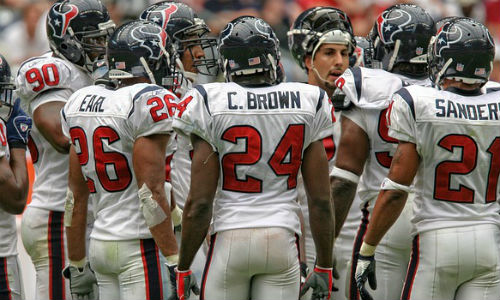The National Football League makes more money than any other pro sports league in the country. Over the past 20 years, NFL teams have raised billions of dollars to renovate stadiums and build new ones. The most expensive is New Jersey’s MetLife Stadium, home to the Giants and Jets, which cost $1.6 billion. The cheapest is the Washington Redskins’ FedExField, coming in at a mere $250 million.
The majority of these stadiums are primarily funded by the public, but without much public input. If your community is home to an NFL facility, readers will want to know how they’re paying for the building, maintenance, or renovation of their mega stadium. Here are places to look.
Tax-exempt Municipal Bonds
Tax exempt municipal bonds are usually responsible for funding a big chunk of these stadiums. Local government leaders can issue revenue bonds to help finance the big projects, just as they fund bridges, airports, hospitals and subsidized housing. Two U.S. Senators, Corey Booker (D-NJ) and James Lankford (R-OK) introduced a bill in 2016 to ban the use of municipal bonds to pay for pro sports stadiums.
Private Funds
While the MetLife Stadium was 100 percent privately funded, according to a CBS Minnesota report, most stadium projects are not majority funded by private funds. Most teams in the NFL do use private funds, but they usually cover less than half of the total cost.
Food and Beverage Taxes
Ticket surcharges are obviously a large source of game-day revenue, but food and drink also contribute to the bottom line. Taxes on beverages and food go toward paying the lease on the stadium (teams don’t fully own them) and paying for future costs. Now you know why a beer cost you over $10.
Rental Car and Hotel Taxes
This story from USA Today reveals a little-known fact about tourist fees: When you pay for a rental car or hotel, you are probably financing that city’s future stadium project. Page eight of this State of Nevada Senate bill draft about stadium financing shows how the state plans on using the tourist fee to pay for parts of its new $2 billion facility for the Raiders.
Live Entertainment Taxes (LET)
Licensed gaming establishments (such as casinos) that host non-gaming events (such as concerts) usually will include a tax for live entertainment, often assessed during ticketing. The State of Nevada Department of Taxation outlines its state’s live entertainment tax here. A portion of that tax may go to support the local NFL stadium.
Parking Fees
Parking fees and taxes are another significant source of stadium revenue. Chicago Bears fans know to expect to pay $50 dollars for parking. Even as Chicago Mayor Rahm Emmanuel talks about additional renovations, those funds can go toward anything stadium-related.
State Infrastructure Funding
Just like tax-free municipal bonds, state infrastructure grants are sometimes used to build stadiums instead of public facilities such as roads and schools. This document from Convention Sports & Leisure International, shows how State lottery money is used for stadiums. The Seattle Seahawks took this route when building Century Link field
Stadium Sales Tax
Some municipalities charge a stadium sales tax to generate money. For example, the Professional Football Stadium District of Brown County, Wisconsin, enacted a local sales tax for its stadiums when it sought to renovate Lambeau Field, originally built 1956 for a cost of $960,000 (covered equally by the Packers Corporation and bonds issued by the City of Green Bay). The stadium’s most recent renovation, costing $312 million, used no public tax money.











